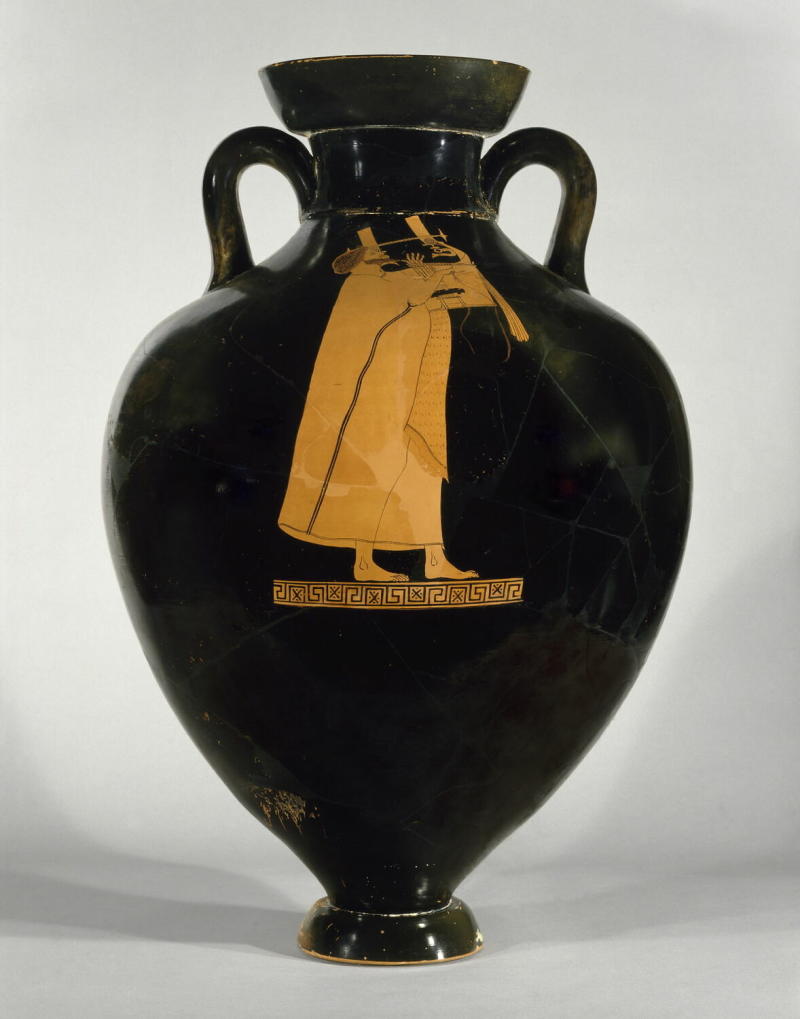Museums & Institutions
Italy Is Calling on the Louvre to Repatriate Seven Ancient Artifacts of Questionable Provenance
The relics were acquired by the museum between 1982 and 1998 from dealers who allegedly trafficked in stolen material.

The relics were acquired by the museum between 1982 and 1998 from dealers who allegedly trafficked in stolen material.

Artnet News

Italy is calling on the Musée du Louvre to return seven ancient artifacts that experts say were looted.
In February, Italian Culture Minister Gennaro Sangiuliano met with Louvre president Laurence des Cars in Paris to discuss the group of objects. Among them is a black, 5th-century amphora attributed to the famed “Berlin Painter” and several Greek vases created between the 4th and 6th centuries B.C.E.
During the meeting, Sangiuliano handed over a letter with a formal request for the relics to be repatriated, according to a new report from Le Monde.
All seven artifacts were acquired by the Louvre between 1982 and 1998 from dealers who trafficked in stolen material.
“I consider that works of doubtful provenance are a stain on the collections of the Louvre,” Des Cars, told Le Monde. “We should acknowledge and examine that with rigor and lucidity.”
The museum is now investigating the provenance of the objects in question. It could return them as soon as this year, if they are indeed proven to have been unethically sourced.
But cases of restitution are not always that simple in France, where objects owned by state-run institutions are deemed “inalienable,” meaning that removing them requires special approval from Parliament.
In January, the country’s Minister of Culture Rima Abdul Malak pledged to introduce several new bills that would ease restrictions on restitutions. One of them, which applies to the restitution of property taken from Jews between 1933 and 1945, was adopted into law yesterday, July 13.
Last year, former Louvre director Jean-Luc Martinez was charged with “facilitating” the acquisition of illegally trafficked antiquities by the Louvre Abu Dhabi between 2014 and 2017.
Representatives from the Louvre did not immediately return a request for comment on Italy’s repatriation application.
More Trending Stories:
An Israeli First-Grader Stumbled on a 3,500-Year-Old Egyptian Amulet on a School Trip